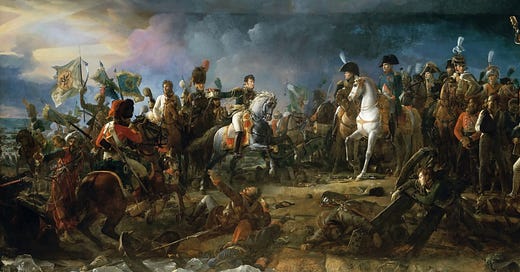Upgrade to paid to play voiceover
Welcome to week nine of War and Peace 2024. This week, we read Book 1, Part 3, Chapters 11 – 17. Everything you need for this read-along and book group can be found on the main War and Peace page of Footnotes and Tangents. There you will find:
The reading schedule with links to daily chat threads for each chapter.
Weekly updates like this one.
Keep reading with a 7-day free trial
Subscribe to Footnotes and Tangents to keep reading this post and get 7 days of free access to the full post archives.



